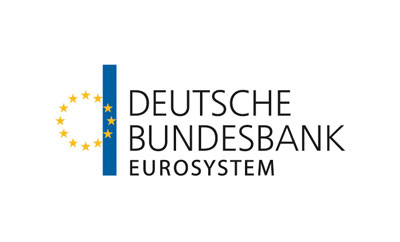Weidmann: “Government bond purchases harbour major moral hazard”

Bundesbank President Jens Weidmann has spoken out against possible plans to expand the Eurosystem’s balance sheet by way of government bond purchases on the part of the euro-area central banks. “Such purchases might create new incentives to run up debt, besides adding to the reform fatigue in a number of countries,”
he cautioned. Nor was there any guarantee that quantitative easing would indeed have the intended impact on the economy, Weidmann pointed out in a conversation with Gabor Steingart, publisher of the Handelsblatt, which was part of a series of events organised by Verlagsgruppe Passau entitled “People in Europe”.
A huge challenge for monetary policymakers
Weidmann said it was understandable that the ECB Governing Council was discussing additional monetary policy measures in the current climate, drawing the attention of the more than 500 guests to the weak inflation rate, which was well short of the target level of just under 2%. Low inflation rates would stay with us for some time, he explained. Inflation would only increase very gently because the euro-area economy was only recovering at a modest pace. Weidmann did, however, emphasise that a problematic downward wage-price spiral was still a remote prospect, in his opinion. That being said, an environment in which inflation rates are too low for too long has presented a huge challenge for monetary policymakers.
For Weidmann, the fact that the muted inflation rate owed much to declining energy prices and also to the necessary adjustment processes in the euro-area crisis countries suggested that monetary policy matters should be considered with a degree of calm. “But monetary policy cannot eliminate both root causes,” he said.
Purchase programmes create moral hazard
The effectiveness of a government bond purchase programme of this kind probably also hinged on the environment in which purchases took place, Weidmann explained. That made it difficult to compare the programmes run by the US Federal Reserve, the Bank of England and the Bank of Japan with possible purchases in the euro area. Furthermore, the effectiveness of each country’s purchase programmes had been very mixed, and in some cases it was still impossible to even gauge whether they had been successful or not, he added.
In Weidmann’s opinion, the purchase of government bonds did, however, entail substantial additional moral hazard, besides being questionable from a legal angle. Governments that knew that they could rely on the Eurosystem to cap interest rates by purchasing government bonds might be encouraged to run up more debt. If that were the case, Weidmann cautioned, these countries would no longer be liable for the outcome of misguided fiscal and economic policies. But the euro crisis had particularly shown what would happen if the principle of individual national responsibility was breached over an extended period. If the liability principle were rigorously applied to sovereigns as well, it would ultimately produce a superior form of economic policy which tackled the root causes of problems rather than just the symptoms. Weidmann pointed to developments in Ireland and Spain, saying that these member states had shown that reforms pay off.
Don’t shy away from championing the rules
Weidmann rejected calls for Germany to step up its investment as a way of helping other member states. For one thing, he said, there was no single European fiscal policy, nor was there any willingness on the part of the member states to surrender any fiscal powers. And yet the calls for Germany to increase its investment to help its partners amounted to nothing more than a plea for a common fiscal policy, he asserted. For another thing, Weidmann pointed out, such expenditure would do little to help countries on Europe’s periphery. But in his view, this did not amount to categorically ruling out new German investment – rather, any such expenditure would need to be used sensibly and not be financed through borrowing. Weidmann also rejected calls for the euro area to redefine its debt rules. We shouldn’t shy away from championing compliance with the Treaties,
he said.
Source: bundesbank.de – Weidmann: “Government bond purchases harbour major moral hazard”





























